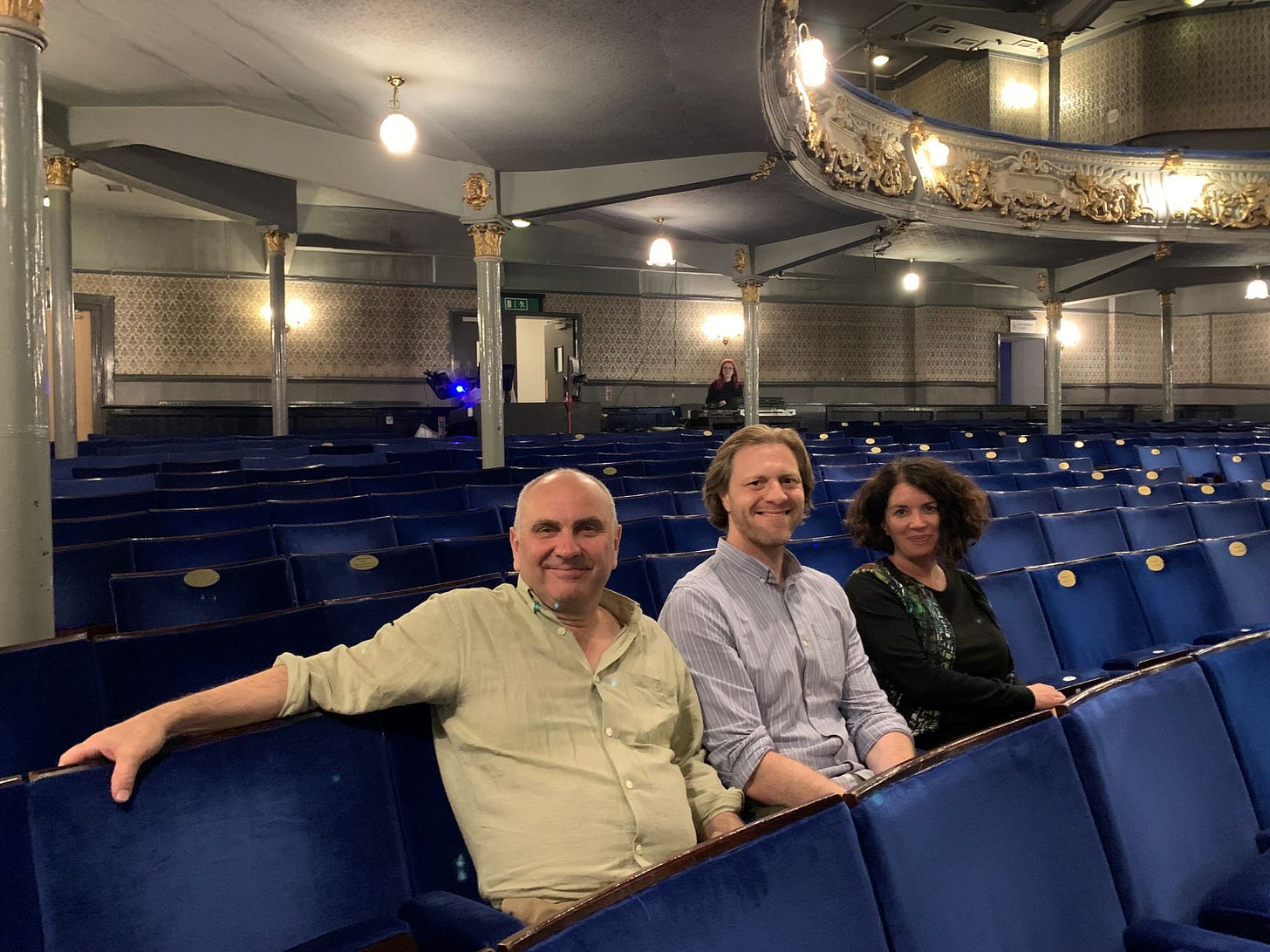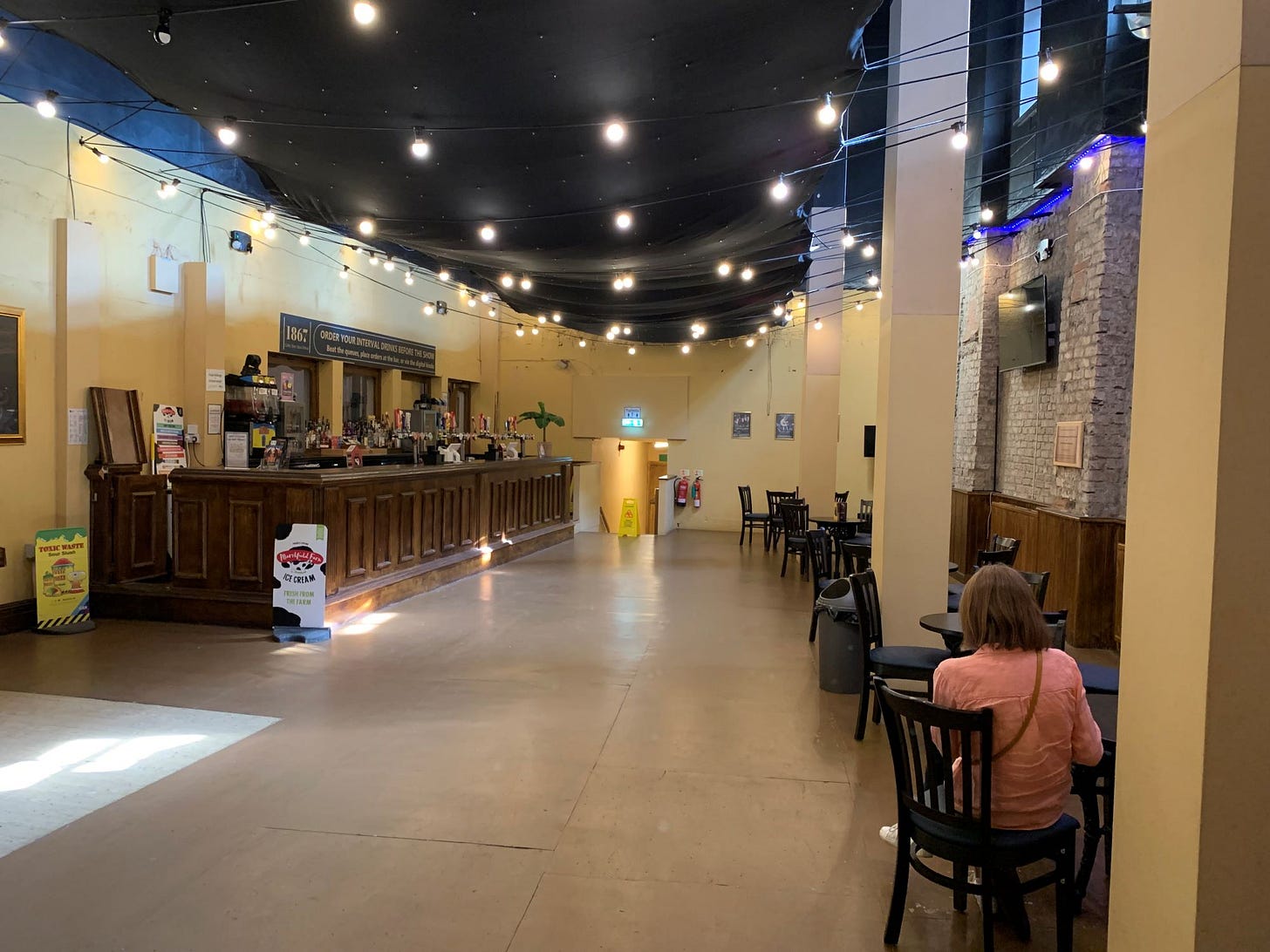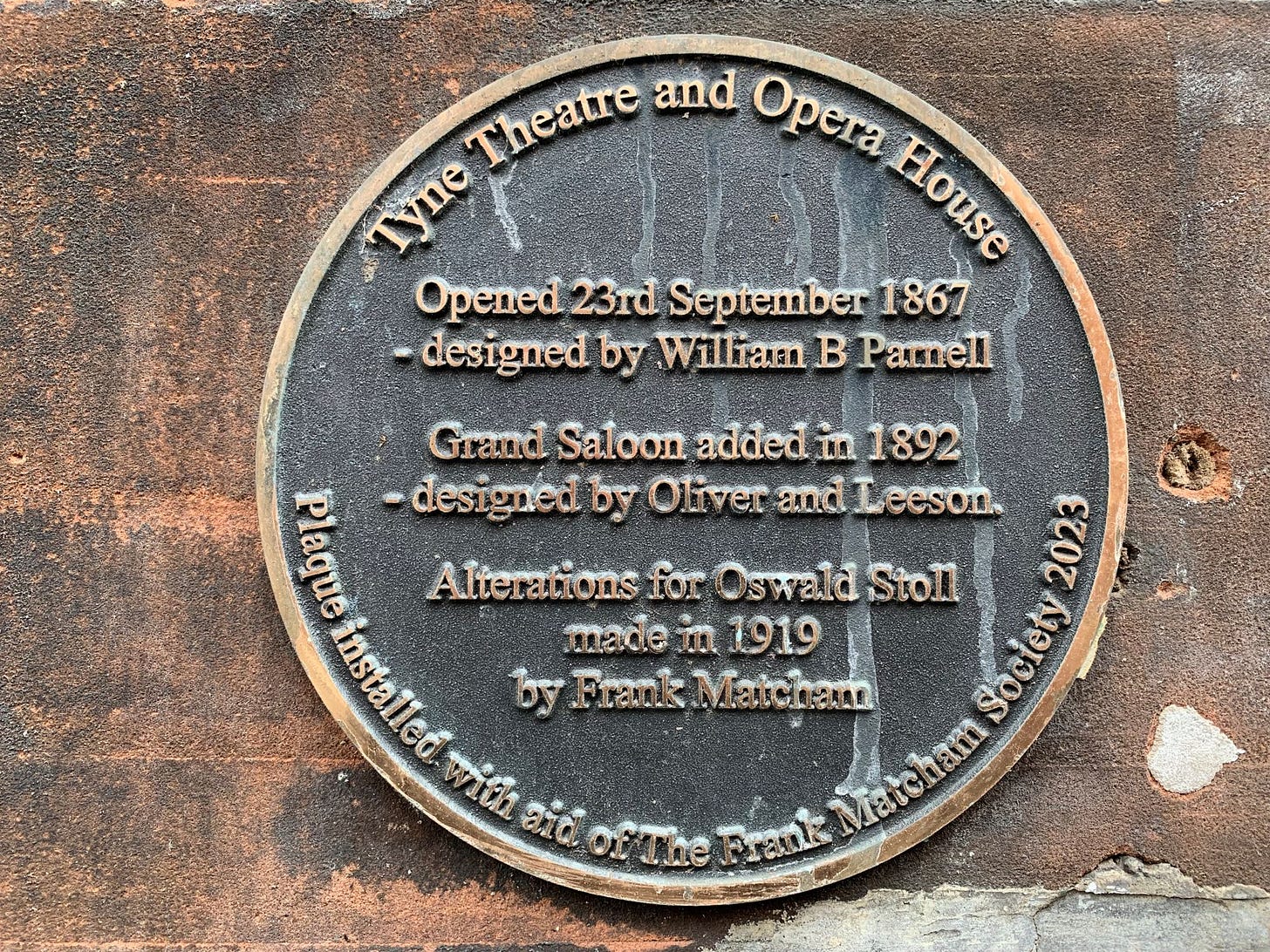Why the future looks bright for historic Tyne Theatre
A gem at the heart of city's creative zone
The 1867 Café Bar on Westgate Road is back in business after a recent break-in, resuming its role as the new and welcoming face of the Tyne Theatre & Opera House - and the place where you can buy tickets.
This unfortunate blip – not the first in its chequered history – doesn’t mean things aren’t looking up for the Grade I-listed Victorian theatre.
Ambitious plans are afoot to secure its long-term future and make it a community resource not just in the evenings but throughout the day.
Crucially it’s at the heart of Creative Central NCL, the creative zone funded by the North East Combined Authority (NECA) and Newcastle City Council where culture is seen as the means to economic regeneration.
Theatre consultant David Wilmore knows the Tyne Theatre better than most. You could say his passion for historic theatres was fired in this very place.
As a Newcastle University student in the late 1970s and early 1980s, he was one of the volunteers who helped to restore the historic stage machinery which had enabled the special effects loved by Victorian audiences.
The theatre gained its Grade I status in the summer of 1985, but on Christmas Day a devastating fire broke out, causing extensive damage to the fly tower above the stage. It made the national TV news.
David, having now dedicated himself to theatre restoration, was asked to come back and assess the damage.
That was also the day he set up his specialist consultancy, Theatresearch. Now a leader in sensitive theatre restoration, it is masterminding the next chapter in the Tyne Theatre’s colourful history.
“Here I am, 40 years later, doing it all again,” he said cheerfully, before going on to explain his latest challenge and lead a tour.
“A big part of what Creative Central are trying to do involves venues and spaces, elevating them, I guess, and getting them to work together to bring new opportunities. It’s shining a light.
“One of the key things we’re doing with the Tyne Theatre is helping them to access funding.”
It has been going well so far.
Last year, with the backing of various supporters, the theatre trustees were able to secure £500,000 from the NECA for the creation of the café bar and crucial work on the large space behind it, originally the ‘grand saloon’.
Many will know this space as the Tyne Theatre bar and bistro (once it was Dave Johns’ comedy club) but it occupies the footprint of what was once the theatre next door, the now long forgotten Westgate Music Hall.
“With the help of the Combined Authority and the City we’re reclaiming that footprint to create a community space, an auditorium with multiple potential uses, which is amazing,” said David.
“We’ve been doing a lot of research on it. It could be used by groups to rehearse or for shows that could run alongside those in the main theatre.”
An application for £5m has been lodged with the National Lottery Heritage Fund towards a project which has been costed at £6.1m. A decision is expected in September.
Broken down into stages, great progress has been made. The first phase, said David, involved not just the creation of the 1867 Café Bar but the preparation of the previously low ceilinged space behind.
The 1960s ceiling has now gone but that’s not all.
“Three floors had been laid one on top of the other across this space and sandwiched with asbestos,” said David. “There were also loads of pillars in the middle of the room.”
The work to remove all that was finished ahead of time and in February North East Mayor Kim McGuinness unveiled a plaque to mark phase one’s formal completion.

There’s still work going on, though. Another National Lottery Heritage Fund grant of £247,500 is paying for improvements to the theatre gallery, ‘the gods’, where an extra 144 seats are being added.
Changes haven’t only been made to the fabric of the building. Also crucial to the theatre’s renaissance, said David, were some key appointments, not least that of chief executive Jonathan Higgins nearly two years ago.
After a succession of general managers, a “serious player” had been needed to “look at commercial opportunities in a way that hadn’t been done before”.
Also added to the payroll was master carpenter Colin Hopkins who had so impressed the trustees on one job that they thought they’d be mugs to let him go.
“Whenever I do a project like this, the critical thing is that the stars have to align,” said David.
“However good you are, it’s very difficult to deliver if the bigger picture, whether it be economic, political, social, isn’t there.
“But we feel it’s all coming together here. It’s a really exciting time with a wonderful opportunity to get things moving in the right direction.”
Those at Creative Central NCL and the city council are delighted with progress and the way the much-loved old theatre can be integrated more effectively into future plans.
“One thing that’s really important for us is sustainable work spaces in the city centre, so this development will certainly help with that,” said economic development officer Anna Czigler.
“And it ties in with other projects we’re working on to support the creative sector.
“Community groups that don’t have a space will be able to rehearse and perform here in a sustainable way.”
Ed Banks, economic advisor at the city council, said Creative Central NCL had engaged first with the creative industries but now the public was starting to see the benefits.
“What we really want is for people to embrace their public spaces, take pride and feel safe in them.”
Clearly a burglary doesn’t help. But if for the Tyne Theatre & Opera House things have never been plain sailing, optimism has never been in short supply.
On opening night in September 1867, manager George Stanley apologised to the expectant audience for his less than immaculate appearance, saying he had been “hard at work till the eleventh hour and the fifty ninth minute”.
Raising his voice above the sound of hammering, he said that unfortunately the building was not quite finished.
And before the curtain rose on the Irish melodrama chosen as the first production, he craved the audience’s indulgence “for any imperfections you may see in the entertainment this evening.”
He concluded by assuring them “that all that is defective shall be remedied, and everything that is good shall be improved.
His words have echoed down the decades and may be ingrained in the theatre’s fabric as the quest for improvement goes on.
· Just opened to the public at the Farrell Centre in Newcastle is an exhibition, inspired by Creative Central NCL, showcasing proposals by students from Newcastle and Northumbria universities for fostering creativity in the city centre.







